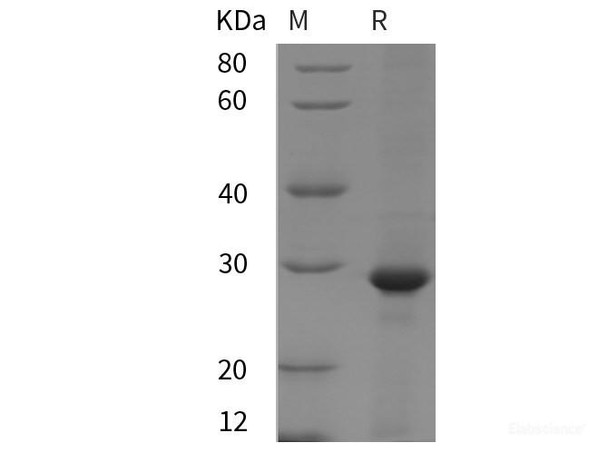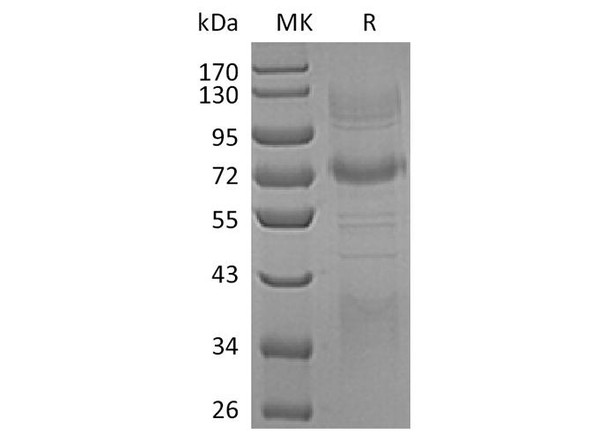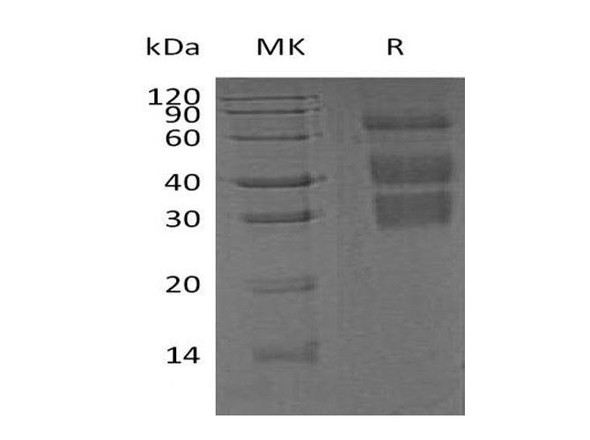Description
| Product Name: | Rat Clusterin/ApoJ Recombinant Protein (His tag) |
| Product Code: | RPES5889 |
| Size: | 20µg |
| Species: | Rat |
| Expression Host: | E.coli |
| Synonyms: | Clusterin, Aging-Associated Gene 4 Protein, Apolipoprotein J, Apo-J, Complement Cytolysis Inhibitor, CLI, Complement-Associated Protein SP-40, Ku70-Binding Protein 1, NA1/NA2, Testosterone-Repressed Prostate Message 2, TRPM-2, CLU, APOJ, CLI, KUB1, AAG4, AP |
| Mol Mass: | 22.44 kDa |
| AP Mol Mass: | 28 kDa |
| Tag: | N-His |
| Purity: | > 95 % as determined by reducing SDS-PAGE. |
| Endotoxin Level: | Please contact us for more information. |
| Bio Activity: | Testing in progress |
| Sequence: | Glu 22-Arg 226 |
| Accession: | P05371 |
| Storage: | Generally, lyophilized proteins are stable for up to 12 months when stored at -20 to -80°C. Reconstituted protein solution can be stored at 4-8°C for 2-7 days. Aliquots of reconstituted samples are stable at < -20°C for 3 months. |
| Shipping: | This product is provided as lyophilized powder which is shipped with ice packs. |
| Formulation: | Lyophilized from sterile PBS, pH 7.4. Normally 5 % - 8 % trehalose, mannitol and 0.01% Tween80 are added as protectants before lyophilization. Please refer to the specific buffer information in the printed manual. |
| Reconstitution: | Please refer to the printed manual for detailed information. |
| Background: | Clusterin is a secreted protein which belongs to the Clusterin family. Clusterin is expressed in adult testis; heart; ovary; adrenal gland; brain and liver. Clusterin has been suggested to be involved in several basic biological events such as cell death; tumor progression; and neurodegenerative disorders. In addition;Clusterin is up/ down regulated on the mRNA or protein level in many pathological and clinically relevant situations including cancer; organ regeneration; infection; Alzheimer disease; retinitis pigmentosa; myocardial infarction; renal tubular damage; autoimmunity and others. |






